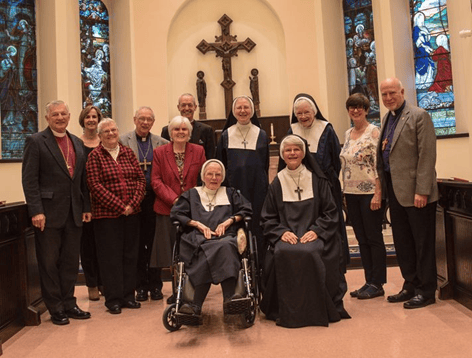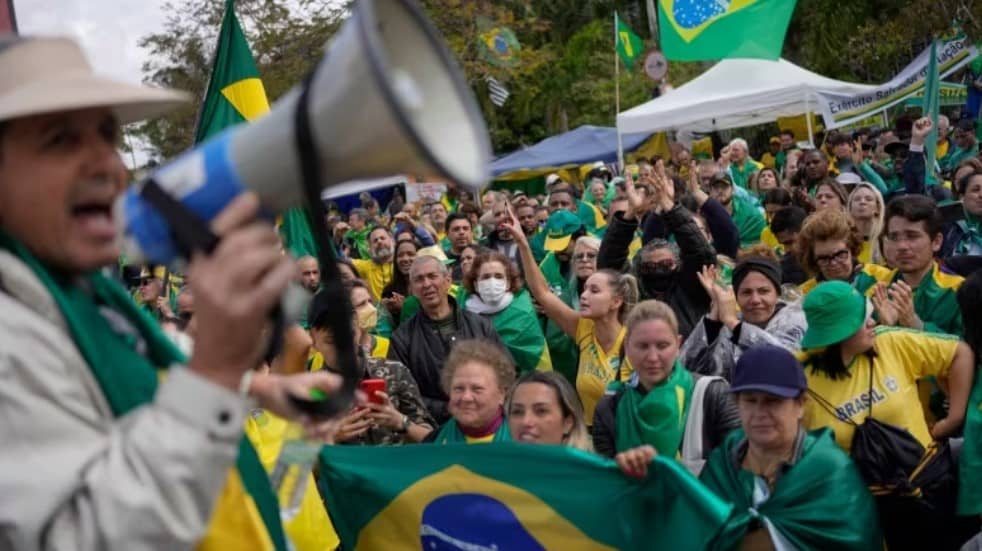It’s not just “life on hold” for younger Americans during the COVID-19 pandemic; some young are feeling “helpless and very disempowered by not being able to do much,” while others are working tirelessly as first responders.
Darius Villalobos, the director of diversity and inclusion for the National Federation for Catholic Youth Ministry, was speaking at an April 27 web roundtable on the coronavirus and young adults sponsored by Georgetown’s Initiative on Catholic Social Thought and Public Life.
Villalobos said there was a pervasive sense of loss – of loved ones, work, security – in this moment among young adults, and highlighted the need for mental health resources and for young people to be open about where they are hurting.
“Realistically, a lot of us are having to be present through our relationships and checking in on those we care about and those we know,” he said.
The event was the third installment in a series sponsored by the Initiative, following events on the broader economic and social considerations of the pandemic.
Ashley McKinless, an associate editor at America and co-host of the Jesuitical podcast, reflected on Pope Francis’ recent appeal – made during an interview with papal biographer Austen Ivereigh – to young people to courageously look ahead and be prophetic.
“Pope Francis always has the right thing to say; I love when he talks to young people. It never feels like he’s pandering to us and saying what we want to hear, but is often challenging and reminding us that, yes, the Church relies on our energy and new ideas, but we should be rooted in tradition and looking to our elders,” she said.
McKinless explained that a growing virtual community around the Jesuitical podcast has become a place that blends both tradition and new ideas as members share pictures of their home altars, exchange tips on participating in virtual masses, and highlight prayer practices they’ve found in the tradition that have proven fruitful during quarantine.
Kimberly Mazyck, senior manager for engagement and educational outreach at Catholic Charities USA, said younger people do not always have many options for getting involved.
Requests for services at agencies around the country like Catholic Charities have been on the rise and are taking new forms, so many agencies still are accepting physical volunteers, she said. For those who cannot serve in person, websites like allforgood.com offer people ways to volunteer from the safety and comfort of their own home.
Now is also the “perfect time to use your voice” and get involved as an advocate on behalf of those who have been disproportionately affected by the pandemic, Mazyck added.
Mazyck encouraged people to raise their voices on behalf of those who “take care of us in body or make sure we’re fed.” She also highlighted major concerns for migrant farm workers, noting that talk of “letting farmers pay them whatever they want” due to the strains of the pandemic cannot be the solution.
Religion News Service columnist Tara Burton highlighted a different sort of pre-existing crisis that has surfaced in recent weeks, naming it a “crisis of particularity.”
“The very intentional practice of paying attention to other people as people,” Burton explained, has fallen by the wayside in culture that thinks in terms of numbers and increasingly relies on economic exchanges with anonymous people, such as rideshare workers or food delivery people.
In order to resist falling into the trap of thinking that groceries or packages magically appear on our doorsteps, she argued, we need to “cultivate in every interaction we have, a memory of what it means to be in dialogue with a particular human being” as a form of prayer and love for God and neighbor.
McKinless said that while there’s “restlessness about the Church” for many young people, one of the pandemic’s encouraging offshoots has been a noticeable movement by the Church into the spaces that young people inhabit that has required Church leaders to draw upon young people for their technological skills.
“This is going to fundamentally change how we function as Church,” she concluded.
Mazyck agreed and said that now is the time to “start thinking innovatively as Church about how we’ll grow and make it better” because “normal wasn’t working.” There is a need for a “more inclusive new normal” and, she argued, now is the time to be asking, “How do we do things differently, especially for communities of color?”
Burton said people are called to be “vulnerable with one another.”
“As we chart a moral course forward, I think that we can’t lose sight of the vulnerability of Christ as a model for how we should be with one another.”

















